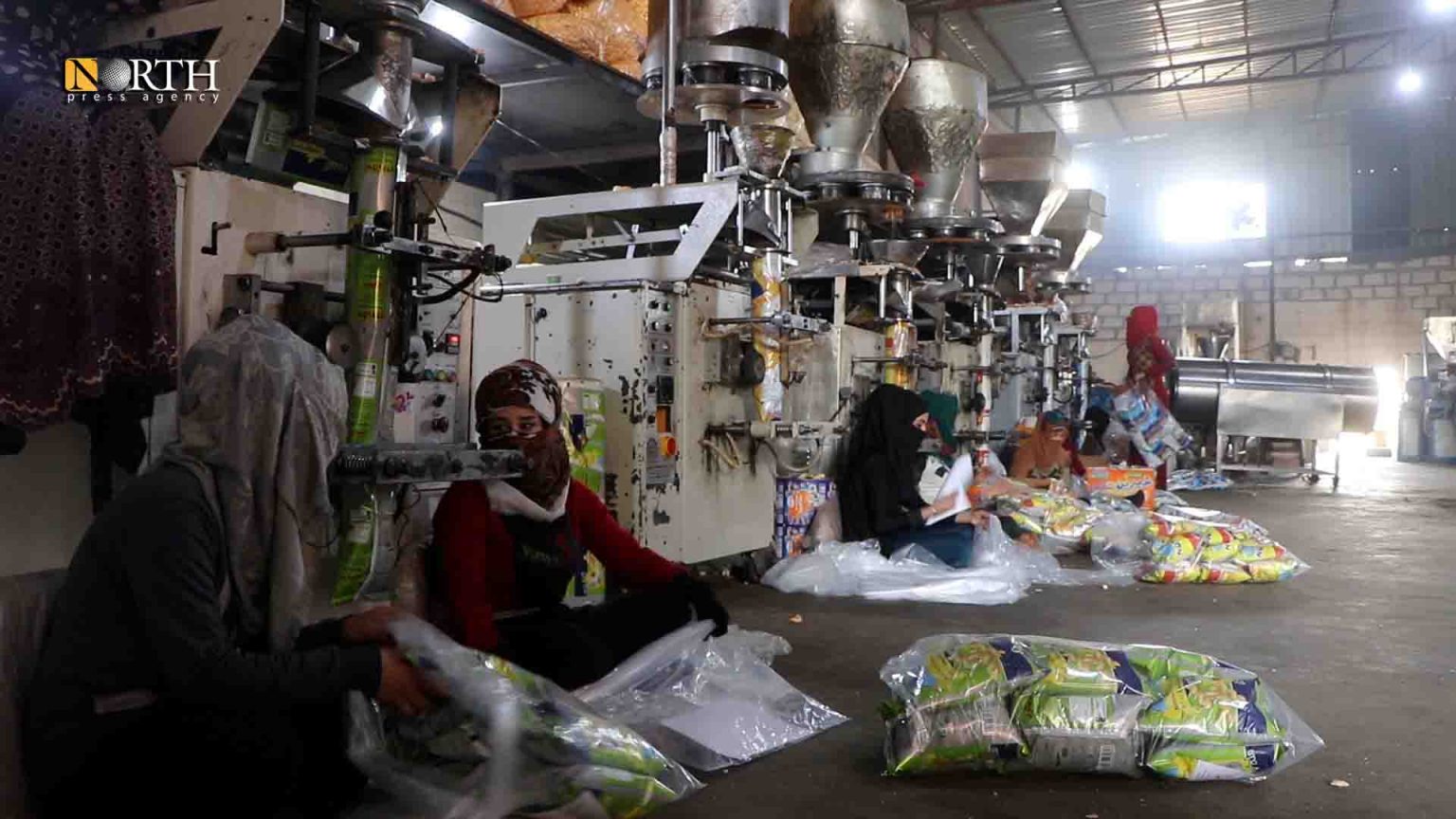Amid rapidly deteriorating life conditions, several factories in the areas of the Autonomous Administration of Northern and Eastern Syria are experiencing relative stability and a revival of commercial activity, securing job opportunities for female workers who work in order to be able to provide for their families.
There are about 540 small and medium factories for foodstuffs and confectionery, in addition to factories packaging cleaning materials, according to the Economic Committee in Hassakeh.
These factories provide job opportunities for thousands of those in need of jobs to secure their families’ daily needs amid harsh living conditions.
“I am forced to work because my husband is ill and his treatment is expensive; we also do not receive aid from any organization or charity,” Yosra Abduljabar, a factory worker residing in Hassakeh, told North Press.
The retirement pension he receives “is not sufficient in the light of the high costs to supply the needs of my family of 12,” she added.
The Rasho chips and popcorn factory in Hassakeh secures job opportunities for dozens of families. “There are about 65 workers in the Rasho factory, most of whom are women and girls,” factory owner Hamo Rasho said.
The factory was established in 1997 and produces about 4,000 bags of chips and popcorn per day, according to Rasho. There are two worker shifts each of which they have 25 workers, in addition to administrators and 16 drivers for transferring the product.
Najah Hashim, from Hassakeh, said that she works in the factory in order to help her family of nine. She added that she wanted to help her father, who is a fisherman., “I do not have a brother to help us in securing our daily needs or paying the rent of the house where we are living.”
Previously, it was common for women in Hassakeh to work in the agricultural sector. However, due to ten years of war, planting declined there and the Autonomous Administration institutions secured other job opportunities for them.
Sara Molhim, who was displaced from Deir ez-Zor and lives east of Hassakeh, said that she comes to the factory at 7 AM and leaves at 5 PM, making 2,500 Syrian pounds per day.
Despite the long work hours, they are comfortable, packing chips in bags and organizing them in cars or warehouses, she added.
This article was edited by The Syrian Observer. The Syrian Observer has not verified the content of this story. Responsibility for the information and views set out in this article lies entirely with the author.


